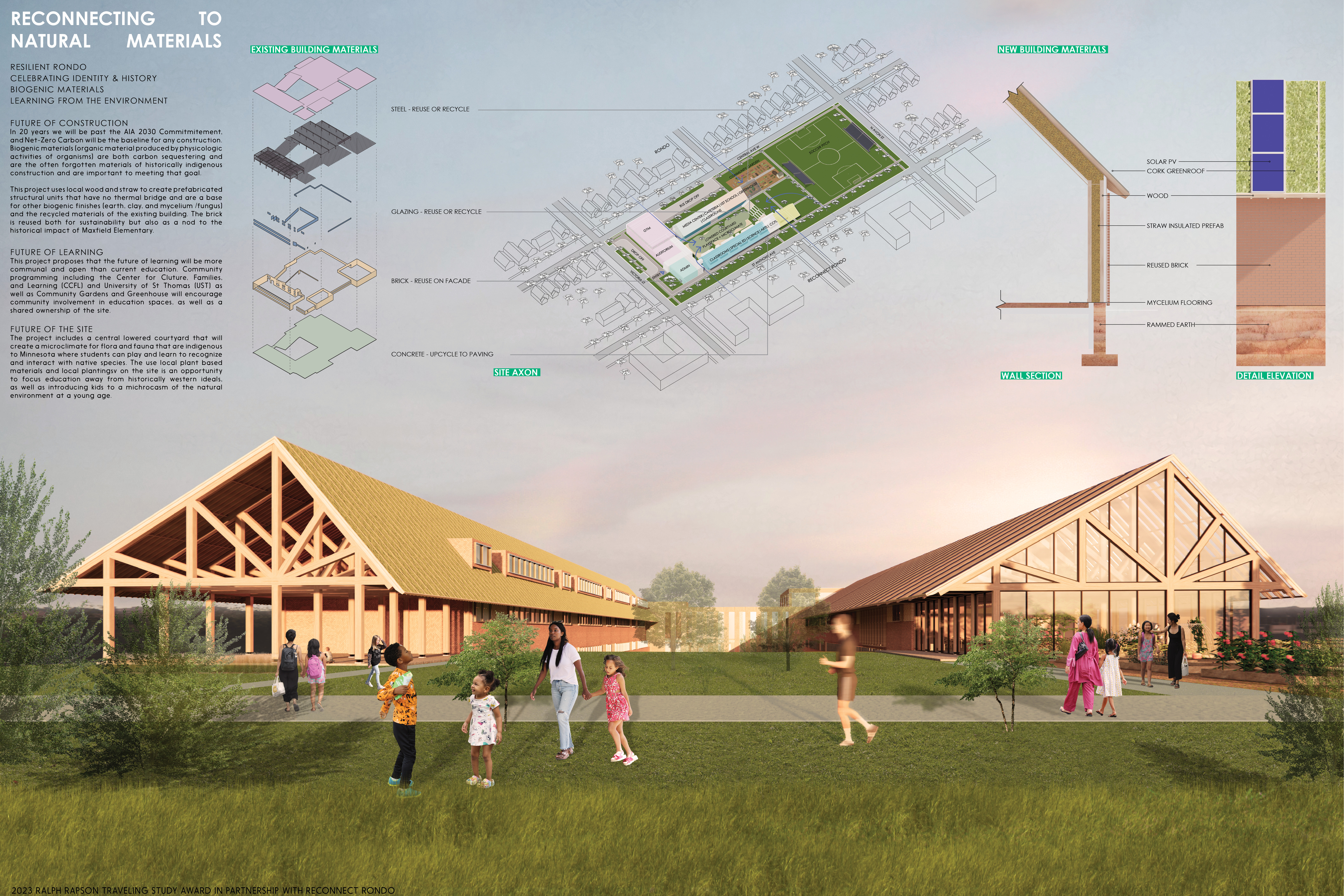2023 RALPH RAPSON TRAVELING FELLOWSHIP
RECONNECTING TO NATURAL MATERIALS
RESILIENT RONDO
CELEBRATING IDENTITY & HISTORY
BIOGENIC MATERIALS
LEARNING FROM THE ENVIRONMENT
FUTURE OF CONSTRUCTION
In 20 years we will be past the AIA 2030 Commitmitement, and Net-Zero Carbon will be the baseline for any construction. Biogenic materials (organic material produced by physicologic activities of organisms) are both carbon sequestering and are the often forgotten materials of historically indigenous construction and are important to meeting that goal.
This project uses local wood and straw to create prefabricated structural units that have no thermal bridge and are a base for other biogenic finishes (earth, clay, and mycelium /fungus) and the recycled materials of the existing building. The brick is reused both for sustainability but also as a nod to the historical impact of Maxfield Elementary.
FUTURE OF LEARNING
This project proposes that the future of learning will be more communal and open than current education. Community programming including the Center for Cluture, Families, and Learning (CCFL) and University of St Thomas (UST) as well as Community Gardens and Greenhouse will encourage community involvement in education spaces, as well as a shared ownership of the site.
FUTURE OF THE SITE
The project includes a central lowered courtyard that will create a microclimate for flora and fauna that are indigenous to Minnesota where students can play and learn to recognize and interact with native species. The use local plant based materials and local plantingsv on the site is an opportunity to focus education away from historically western ideals, as well as introducing kids to a michrocasm of the natural environment at a young age.

